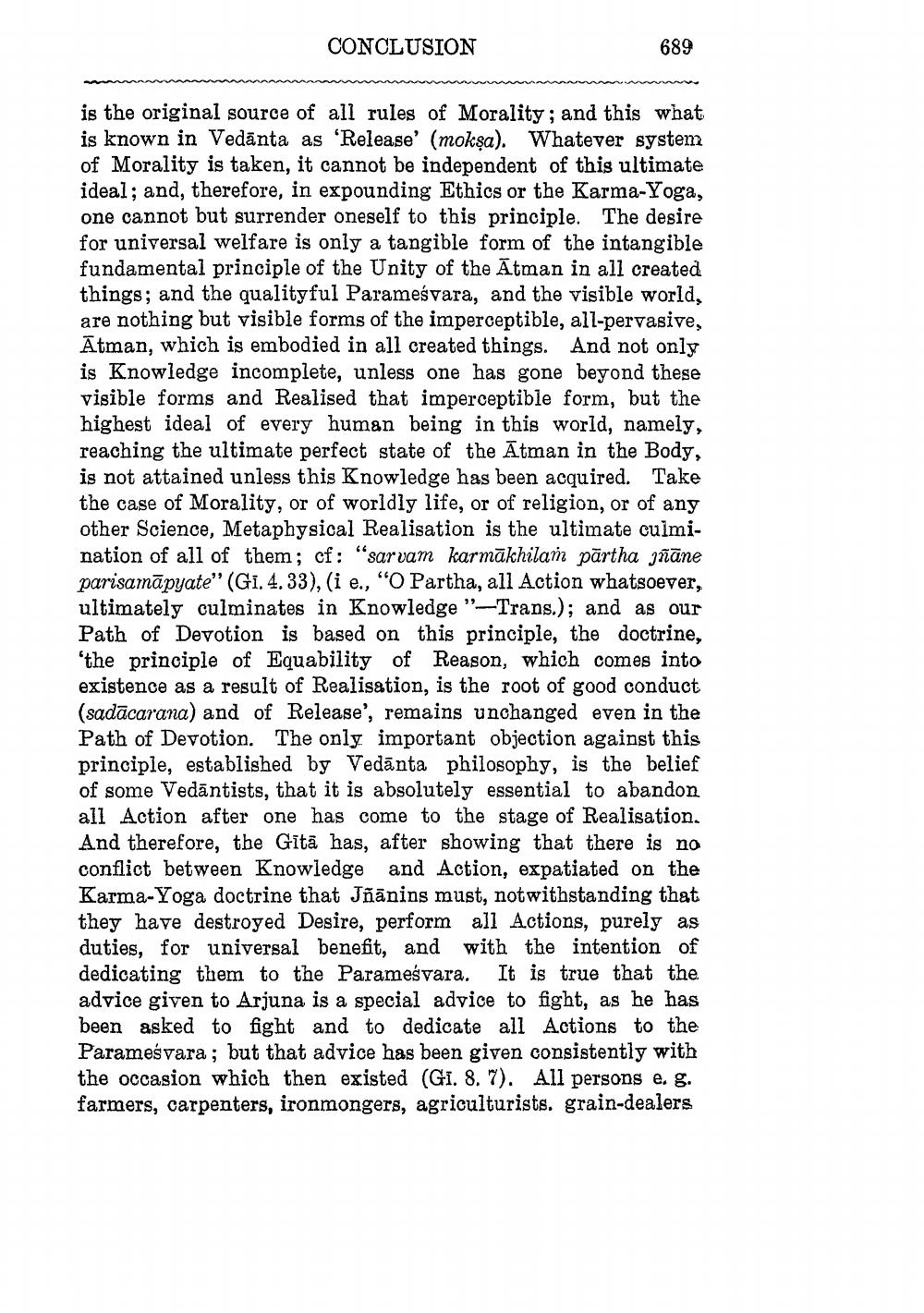________________
CONCLUSION
689
is the original source of all rules of Morality; and this what is known in Vedānta as 'Release' (moksa). Whatever system of Morality is taken, it cannot be independent of this ultimate ideal; and, therefore, in expounding Ethics or the Karma-Yoga, one cannot but surrender oneself to this principle. The desire for universal welfare is only a tangible form of the intangible fundamental principle of the Unity of the Ātman in all created things; and the qualityful Parameśvara, and the visible world, are nothing but visible forms of the imperceptible, all-pervasive, Ātman, which is embodied in all created things. And not only is Knowledge incomplete, unless one has gone beyond these visible forms and Realised that imperceptible form, but the highest ideal of every human being in this world, namely, reaching the ultimate perfect state of the Atman in the Body, is not attained unless this Knowledge has been acquired. Take the case of Morality, or of worldly life, or of religion, or of any other Science, Metaphysical Realisation is the ultimate culmination of all of them; cf: "sar vam karmākhilan pārtha jñāne parisamāpyate" (Gi. 4.33), (i e., "O Partha, all Action whatsoever, ultimately culminates in Knowledge "-Trans.); and as our Path of Devotion is based on this principle, the doctrine, 'the principle of Equability of Reason, which comes into existence as a result of Realisation, is the root of good conduct (sadācarana) and of Release', remains unchanged even in the Path of Devotion. The only important objection against this principle, established by Vedānta philosophy, is the belief of some Vedāntists, that it is absolutely essential to abandon all Action after one has come to the stage of Realisation. And therefore, the Gītā has, after showing that there is no conflict between Knowledge and Action, expatiated on the Karma-Yoga doctrine that Jñanins must, notwithstanding that they have destroyed Desire, perform all Actions, purely as duties, for universal benefit, and with the intention of dedicating them to the Parameśvara. It is true that the advice given to Arjuna is a special advice to fight, as he has been asked to fight and to dedicate all Actions to the Parameśvara; but that advice has been given consistently with the occasion which then existed (GI. 8. 7). All persons e. g. farmers, carpenters, ironmongers, agriculturists. grain-dealers




